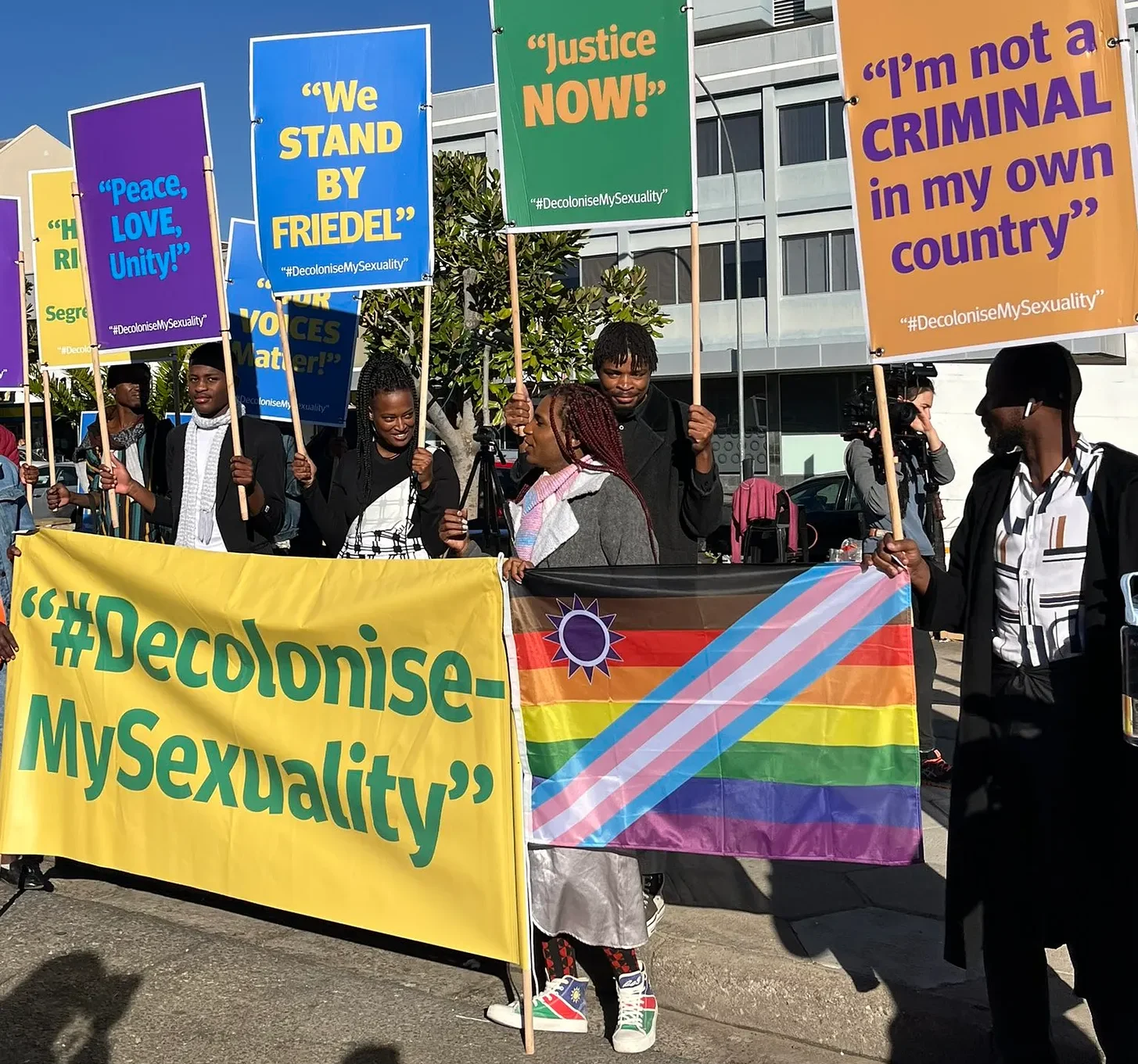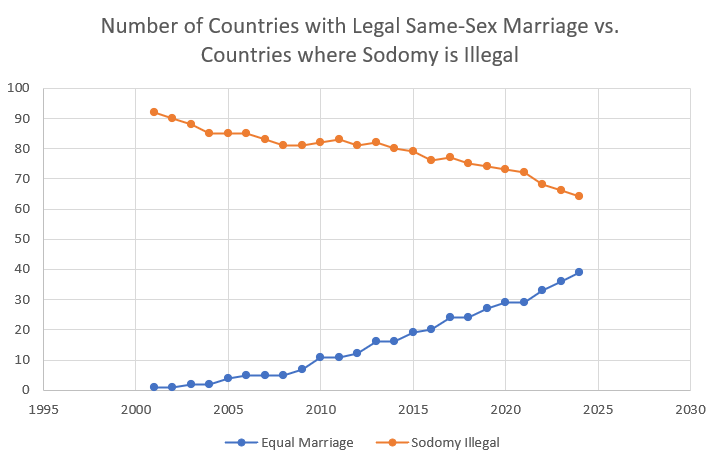
LGBT activists demonstrate outside the High Court in Windhoek, Namibia, ahead of the court’s ruling decriminalizing sodomy. (Photo courtesy of @EqualNamibia on X/Twitter)
This article originally appeared on Rob Salerno’s LGBT Global Newsletter, a free email newsletter charting progress on LGBT rights around the world. Salerno is an editor for RightsAfrica and Erasing 76 Crimes.
The High Court of Namibia in Windhoek finally delivered its long-awaited ruling decriminalizing sodomy June 21, the latest victory for queer activists in the Southern African country. The ruling brings the worldwide total of criminalizing states down to 64, after another victory in the Caribbean island nation of Dominica earlier this year.
The case was filed by gay Namibian activist Friedel Dausab, who is also an expert in HIV prevention and treatment. He testified that he experienced the impact of these laws in his personal and professional life.
The court found the common-law crimes of sodomy and unnatural acts to be unconstitutional as they amount to unfair discrimination. Article 10(1) of the Namibian Constitution says that all persons shall be equal before the law, and Article 10(2) says that no persons may be discriminated against on the grounds of sex, race, colour, ethnic origin, religion, creed or social or economic status. The court found that even though “sexual orientation” is not included in the list of prohibited grounds of discrimination in 10(2), gay people still enjoy equal protection of the law under Article 10(1), and thus discrimination based on sexual orientation is unconstitutional i Namibia.
“[D]epriving gay men of the right to choose for themselves on how to conduct their intimate relationships, poses a greater threat to the fabric of society as a whole than tolerance and understanding of non-conformity could ever do,” the ruling states.
Human Dignity Trust, a UK-based NGO that supported the litigation against the sodomy laws, has posted a detailed explanation of the ruling. UNAIDS has already congratulated the country on the ruling. So has Amnesty International.
The decision continues a trend toward decriminalization in sub-Saharan Africa, with Gabon, Mauritius, Angola, Lesotho, Equatorial Guinea, Sao Tome and Principe, Seychelles, Botswana, and Mozambique all decriminalizing since 2012. Now, 24 of Africa’s 54 countries do not criminalize homosexuality.
Last year, the Supreme Court of Namibia ordered the government to recognize foreign same-sex marriages for residency purposes, although that led parliament to pass an extreme anti-LGBT bill – which still awaits the president’s veto or signature – that prohibits same-sex marriage and some forms of LGBT advocacy and expression. But lower courts have also found that anti-LGBT discrimination is banned in the constitution.
So, what now? Well, there’s a good chance the government appeals, and the decision is taken to the Supreme Court, where they’re likely to lose again. There’s also the outstanding anti-LGBT bill. We can hope the president vetoes the bill, but there’s always the chance that this decision spurs him to sign it, and that parliament passes another bill to criminalize gay sex, and then these laws get taken to the courts again. We’ll have to see in the coming days and weeks. But for now, we can celebrate a victory.

Source: African Human Rights Media Network member Erasing 76 Crimes.
COMMENTS